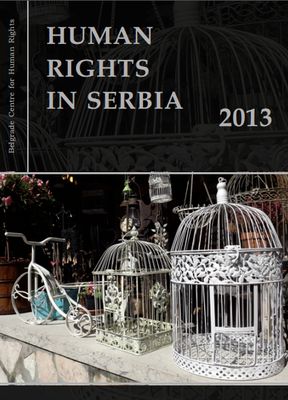
We kindly inform you that, as long as the subject affiliation of our 300.000+ articles is in progress, you might get unsufficient or no results on your third level or second level search. In this case, please broaden your search criteria.


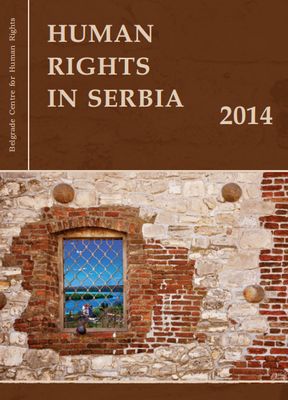

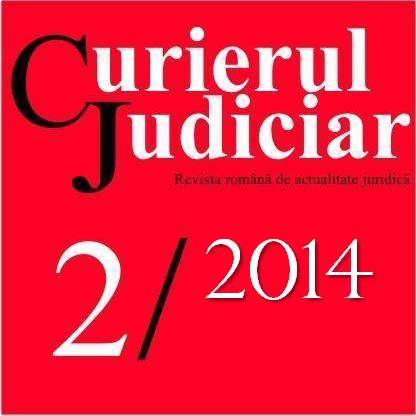
The section contains a presentation of the most important cases against Romania brought before the European Court of Human Rights, summarized and accompanied by notes on their implications on a European level and for the Romanian system, other decisions on the same law issue with similar or different solutions, as well as recommendations for the correct future application of the contested legislation.
More...
In the European Convention on Human Rights’ (ECHR) system, human dignity is not a legally enforceable right. Such right does not figure of itself and, even if it was explicitly mentioned, it couldn’t exist independently of the enforceable rights guaranteed by the Convention (like the interdiction of discrimination provided in Article 14 EHRC). Though the human dignity is not explicitly guaranteed by the ECHR, this concept has an undeniable interpretative value. As an interpretation principle, human dignity has been invoked in order to substantiate individual rights, but also in order to limit individual’s liberties in the name of some values generally accepted by the society. Therefore, the human dignity is a concept which can play a double role – assertive and limitative. With such a wide meaning, this notion is partially suitable for an unique European consensual interpretation and partially convenient for specific national interpretations.
More...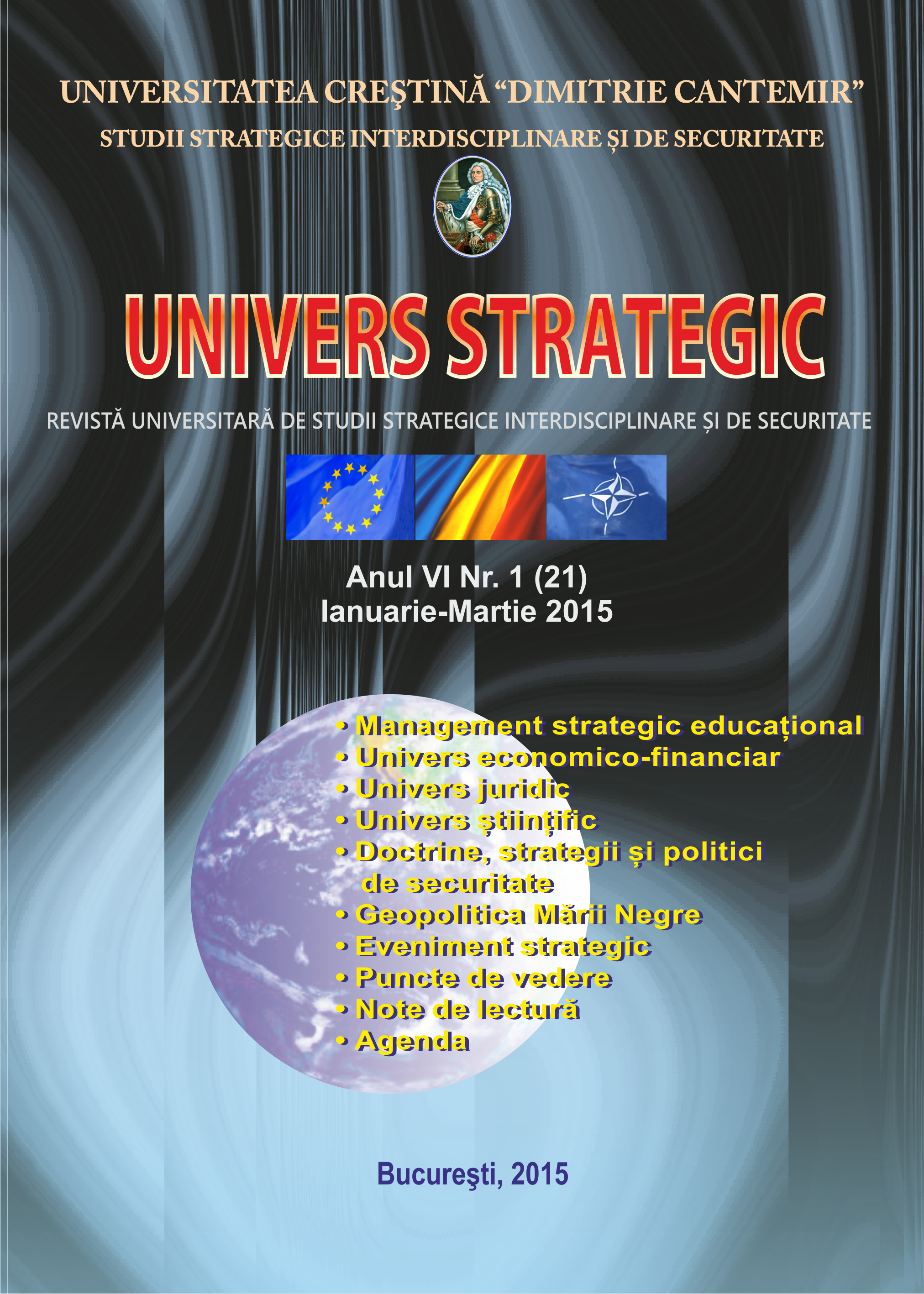
The accession of European Union to the Convention for the Protection of Human Rights and Fundamental Freedoms is an important process both to the Union and its Member States and to the Council of Europe, considering this a new step in protecting human rights. Challenges arising from accession, especially procedural, institutional and operational mechanism of the Convention are analyzed in this article from the perspective of the European Court of Human Rights (ECHR) and in terms of the Court of Justice of the European Union (CJEU). Finally, the issue of the draft agreement on accession to the Convention reserves, possible assessment procedure before the European Court of Justice and the signature, notifications of entry into force of the accession agreement are the main objectives to be met at European level.
More...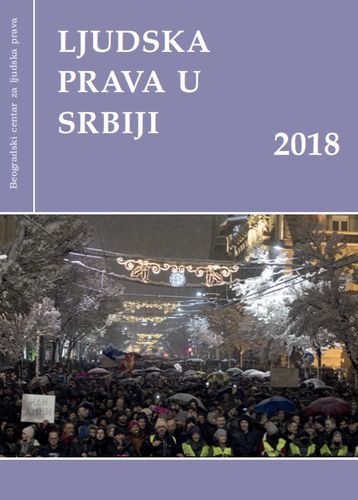
In comparative criminal literature, punishment of blasphemy is being rejected for several reasons. The largest number of theorists point to the importance of freedom of speech, where in order to communicate and exchange ideas, it must be allowed that the manner of expression is sometimes provocative. This particularly refers to those forms of (artistic) expression characterized by the humorous processing of certain social and political themes (caricature, satire). Defining a crime of blasphemy as well encounters difficulties on the dogmatic plan, because of the undefined object of protection and the fact that it is not easy to distinguish the circle of religious systems that deserve protection. In addition, the question arises as to why similar protection would not enjoy beliefs in the sphere of culture, politics, sports, etc. A restrictive approach on this issue is also affected by radical criminal-law protection in this matter in Islamic states. On the other hand, it is not possible to dispute the particular interest of a society to protect certain values whose violation carries an increased risk for the functioning of the legal order, especially in multinational environments. The author presents the most important arguments in this discussion, taking the view that the essential content of the recognized religions deserves to be a subject of limited criminal protection.
More...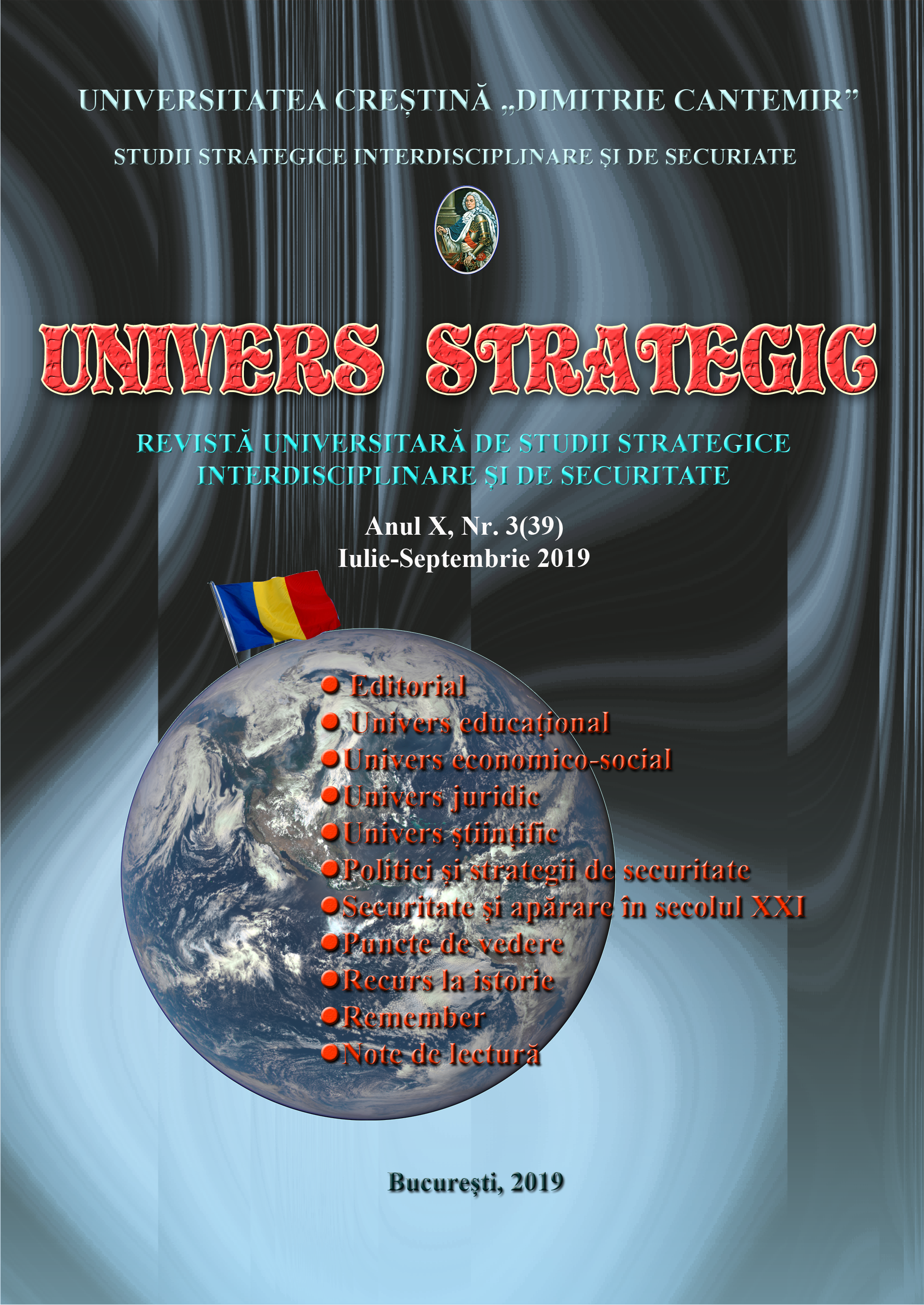
The working conditions of the police officers working in the rural area of Iași county have been analyzed in a quantitative research and whose conclusions we will detail in this article. The man is limited makes the police do not have sufficient knowledge in this area and implicitly not apply them in the criminal prosecution. Unfortunately, the non-observance of these provisions has as a direct consequence a very large number of lawsuits against Romania.
More...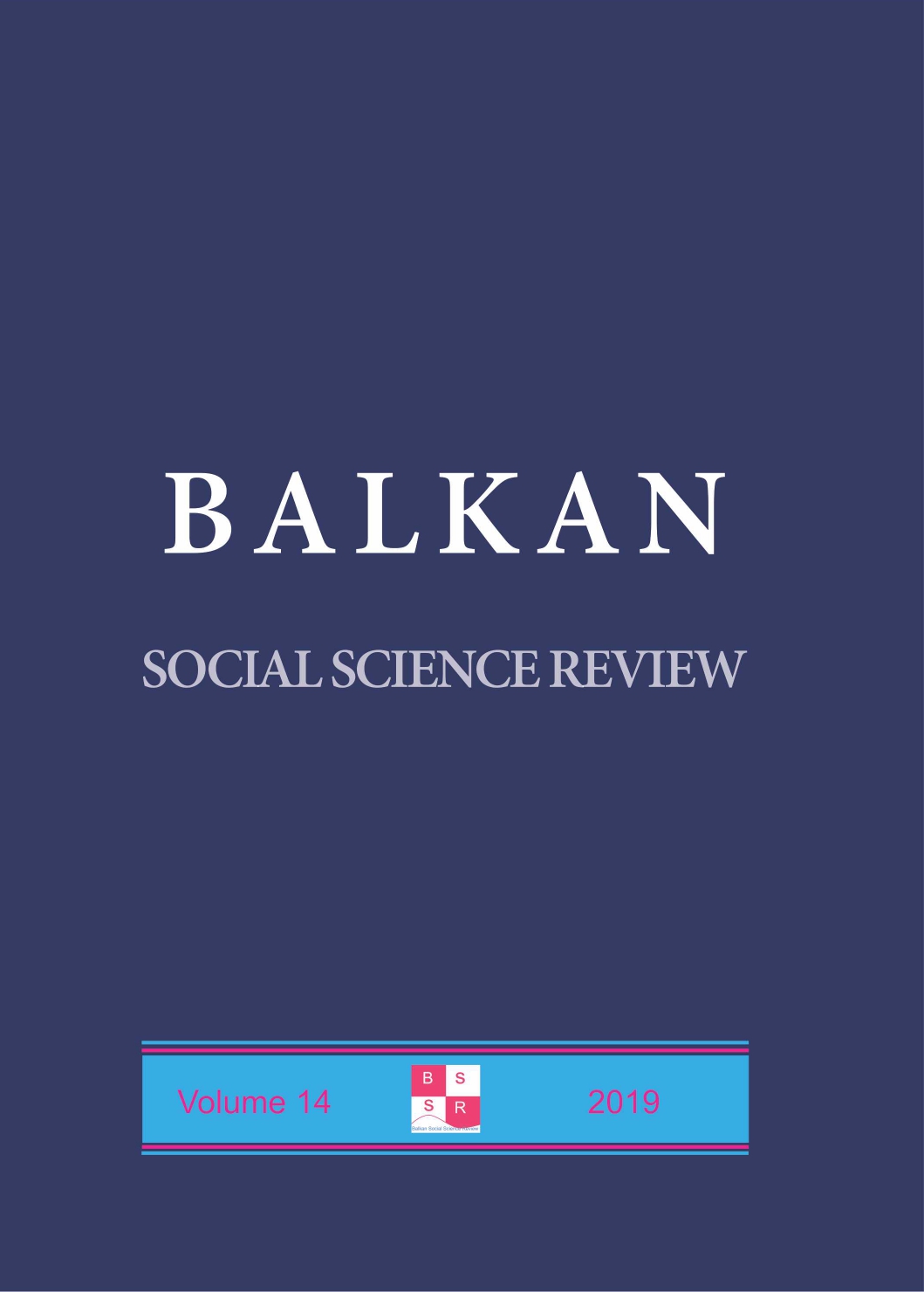
In the past period until nowadays, not only in Macedonia but also in other European countries, one can notice the appearance of indirect discrimination against Roma children through the so called segregation in special (previously used term specialized) schools, i.e. classes of children that attend regular schools. Segregation, i.e. separation of these children is made through their categorization as persons with mild impairments in the psychological development. In the overall educational process of the child, such categorization puts the child in subordinate position to other children who are not categorized, because such child is prevented the possibility to be educated according to the same curricula and syllabus, to be educated in an environment with children who do not have psychological problems and also has less possibility to continue the secondary education based on his/her desires.
More...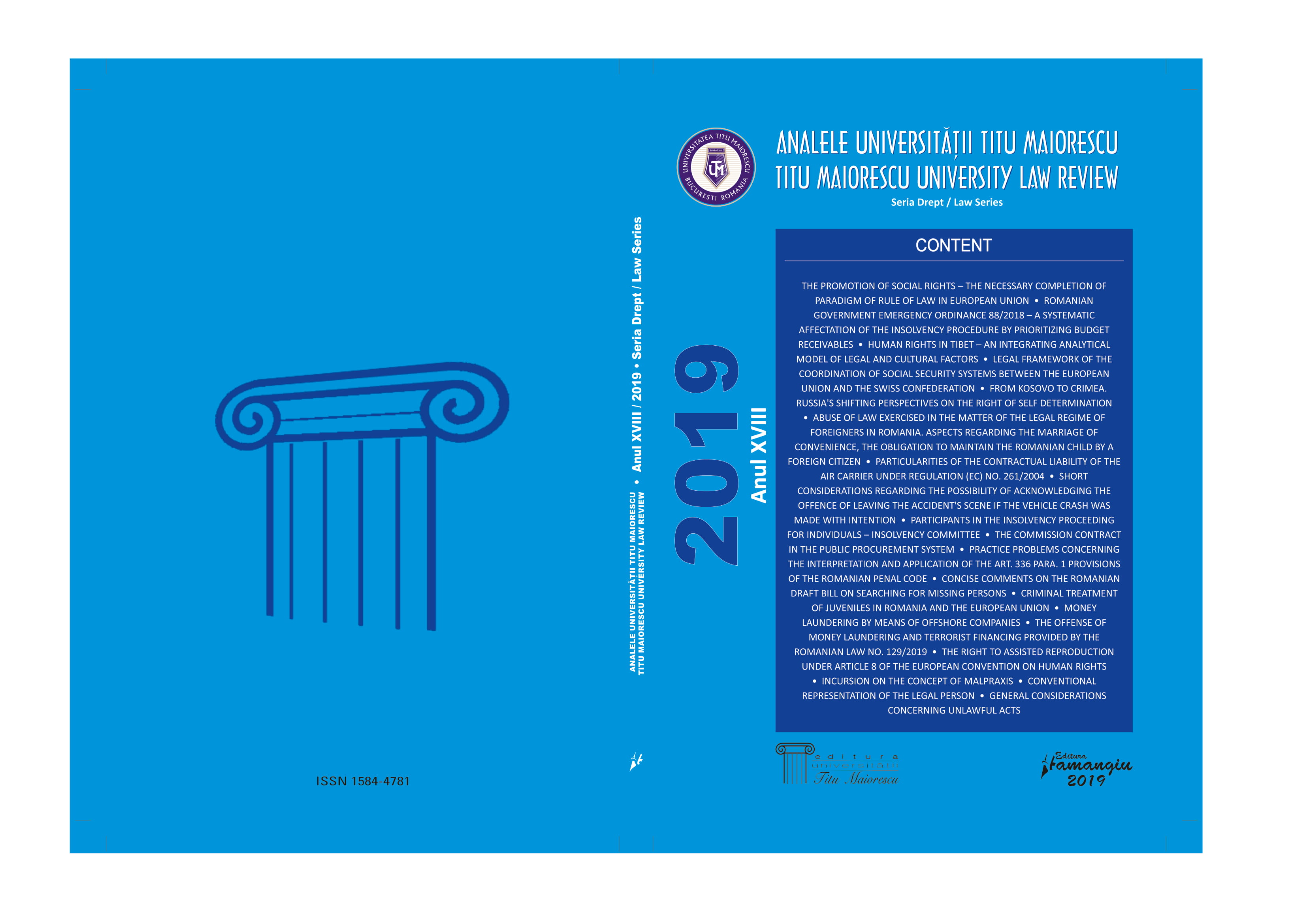
Human rights issues in Tibet cannot be segregated from the historical cultural context of the region. The cultural factor must be perceived as both source and explanation of the breaches of human rights. Likewise, we identify the cultural factor as the main modeller of mental and behavioural patterns manifested within interactions between the members of local communities. In the same token, the cultural factor is the determiner of State action by reference to our subject matter: pursuing the preservation of National Identity, State authorities will conceive a specific conceptualization of human rights that finds itself in dichotomous relations with the understanding of human rights developed by the People. Hence, the ineluctable clash between human rights, State Power and culture.
More...
There is not a right to assisted reproduction regulated as such at international level. This conclusion comes from an analysis of the international legal instruments which are significant to protecting and ensuring human rights, such as the European Convention on Human Rights, the American Convention on Human Rights or the Convention on Human Rights and Biomedicine. With this consideration in mind, we attempt to demonstrate below the existence of the right to assisted reproduction and that this right is part of the category of reproductive rights. Reproductive rights are not a new set of rights; they are rather a plurality of rights and freedoms which are already recognised in international legal instruments and which are relevant to the sexual and reproductive life and health of all individuals. By far the most relevant right in outlining a picture of the right to assisted reproduction is the right to respect for one’s private and family life established by Article 8 of the European Convention on Human Rights. The aim of this article is to analyse the right to assisted reproduction within the context of reproductive rights by highlighting the case law of the European Court of Human Rights and the importance assigned by the Court based in Strasbourg to Article 8 of the Convention in matters of medically assisted reproduction.
More...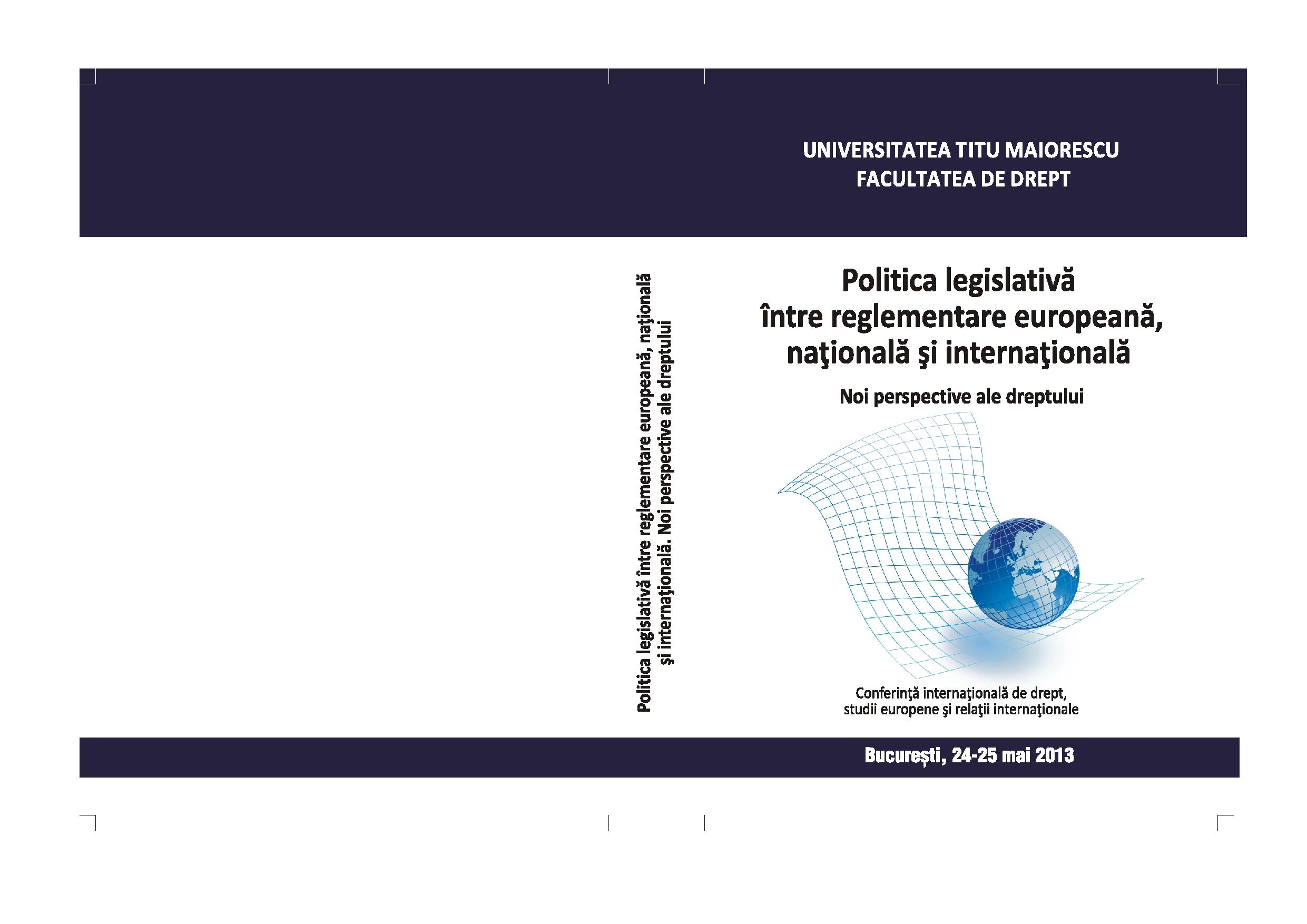
There are more slaves în the world today than at any point în the history. Slavery exists today despite the fact that it is banned în most of the countries and outlawed by largely ratified international conventions. Contemporary slavery takes various forms and affects people of all ages, sex and race. A better understanding of the forms of modern slavery and the scale it reached is enabling us to realize that modern slavery equate with gross violations of human rights, and that the international community has to react and mobilize resources to stop the perpetuation of such a degrading phenomenon for the entire global society. The article argues that the modern slavery forms have passed the ‘ordinary’, national type of crime and became an international crime through the serious human rights violations it entails and the scale it internationally reached. Therefore, international mechanisms of punishment have to be applied în order to stop the modern slavery perpetuation and its disastrous effects on the national and international society.
More...
Law-making should not exclude citizens. The following paper analyses how citizens’ engagement in policymaking fails because of citizens’ illiteracy in law and administration knowledge and provides an updated scenario for building common knowledge through discourse production along policy drafting. In a context of a huge appetite for active participation in the decision-making processes, it is of vital importance to collect people’s views and gain their confidence and support. Creating a constant habit from citizen participation is not only bringing added value in law making, but it is also a guarantee that they will meet the needs of citizens and therefore generate public commitment. Although citizens can contribute with their input, they have limited understanding and control over the data they provide and the results, often remaining detached from the very mission and scope of such involvement.
More...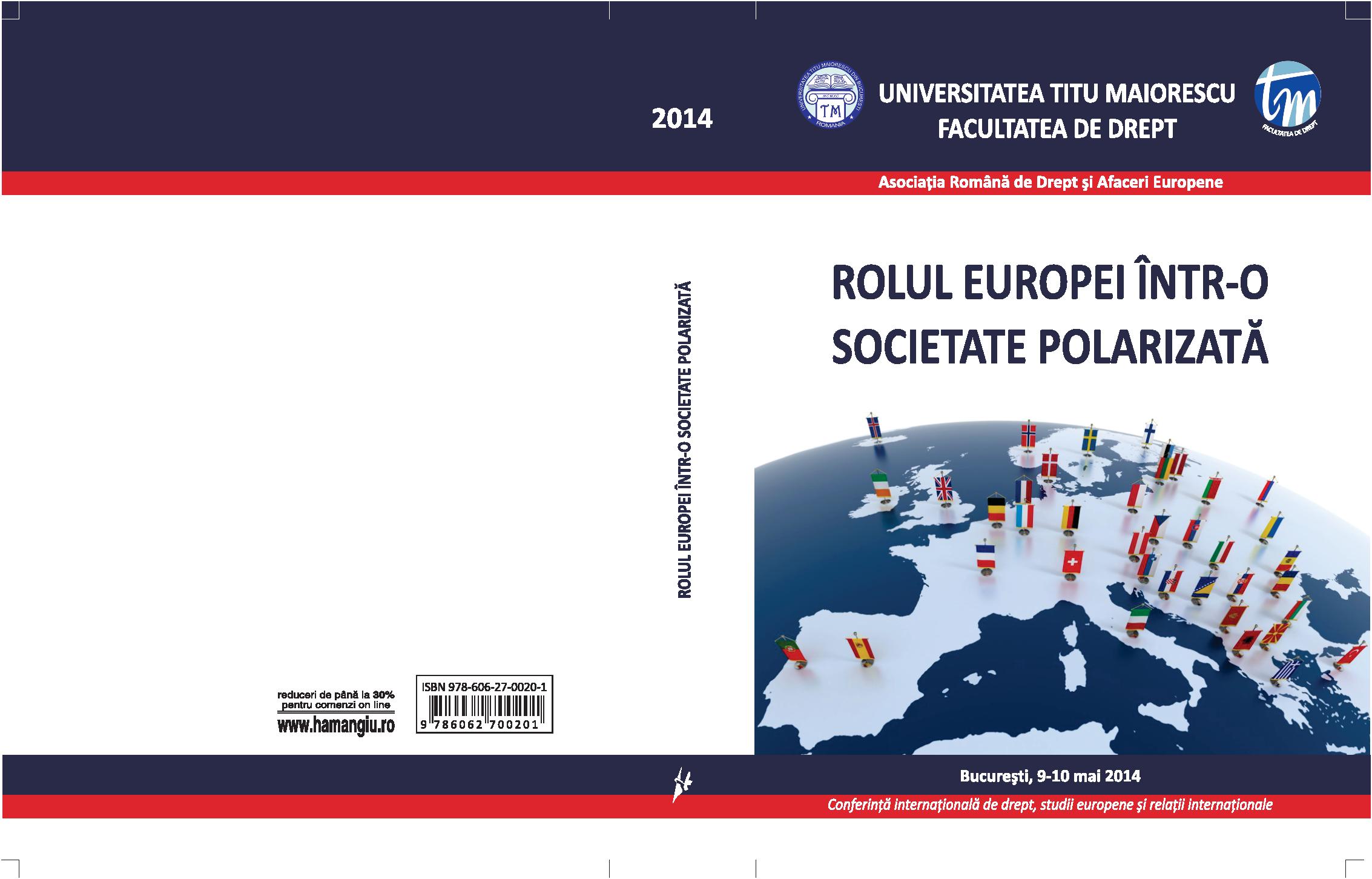
The realisation of a true European area of justice calls for protection and respect for those basic human rights and procedural guarantees underlying the concepts of justice and fair trial, in harmony with the legal standards set by the European Convention of Human Rights and by Strasbourg case law and endorsed by the EU Charter of Fundamental Rights. The relevance of the ECHR acquis for the strengthening of a European area of justice based on judicial cooperation is evident, and this paper aims to illustrate which practical implications and legal obligations stem from it when the EU legislators adopt measures of harmonisation aimed at achieving a higher level of mutual trust between national authorities. In this perspective, the paper will highlight the prominence and non-derogability of the minimum standards of protection set out in the ECHR and established by way of interpretation by the Strasbourg Court, which penetrate the EU legal system through the provisions of article 6(3) of the Treaty on the European Union and articles 52(3) and 53 of the EU Charter of Fundamental Rights. The existing convergence of the two European systems of human rights protection, achieved through the aforementioned provisions, is also supported by the progressive development of overlapping standards of application that emerge from the case law of the European Courts. The paper argues that the possible accession of the EU to the ECHR would open up new prospects for enhanced synergy and integration between the EU and the ECHR legal systems, thus moving towards an “integrated protection” of European citizens.
More...
Analysis of different theoretical perspectives (political-legal and ethical-philosophical) gave to the "human rights" concept varied meanings, triggered opposing attitudes (acceptance or denial) and contrary judgments on its legitimacy. In the author's opinion, the way to overcome the difficulties encountered is the conceptual analysis that is concerned, in particular, in observing the general meaning of this notion. This analysis considers that the term 'human rights' assesses the attributes and defining values for fully functioning of human being
More...
The study has two parts. The first part analyzes the system developed in Europe after WWII for the protection of human rights, based on the interplay between three levels of jurisdiction: the two transnational legal orders newly established (the jurisdiction of human rights – the European Convention of Human Rights system and the jurisdiction of economic integration – the European Economic Community legal order) and the existing national legal orders. The European system of human rights protection took the form of the judicial dialogue between national courts, ECHR and ECJ, the working method was the conditional cooperation and the underlying doctrine was the equivalent protection. The result was an imperfect system of protection, characterized by overlaps and loopholes – “the crowded house”. The second part analyzes the attempt to give coherence and legal certainty to the European system for the protection of human rights, through the accession of the EU to the ECHR. The accession aims at striking a balance between the specific characteristics of EU law and the essential features of the Convention system. The legal architecture of the new cooperation model comprises innovative procedures, contained in the Draft Accession Agreement.
More...
The sphere of women's rights reconfigures the concept of human rights by bringing in the public dimension an assembly of issues that were originally associated with private existence and which were treated with indiference by State officials. From The Universal Declaration of Human Rights to the International Convenants on Civil and Political Rights or on Economic, Social and Cultural Rights and untill the Convention on Eliminating all Forms of Discrimination against Women, the gender issue is present in the human rights approach. Legal regulations (both European and International) have evolved in the sense of a reappraisal of the human rights approach – from the patriarchal scenario to the partnership scenario- and the immediate consequence ment balancing the components of the human rights concept and awarding preeminence to women’s rights. The recognition of women’s rights speech symbolized exceeding the cultural or religious practices that argued, in a euphemistic manner, woman’s ineffable subordination. The moment of Beijing 1995 left in the past the cultural exemption in applying human rights, launching the prerequisites of a visible affirmation of women’s rights beyond the cultural factor. The thesis of re-analyzing human rights from the perspective of affirming women’s rights involves feminist ideas. To this effect, we cannot discuss aboutthe re-conceptualization of human rights by exploring the dimension of women’s rights if we fail to understand that, this scientific demarche follows the introduction of feminist values in the logic of approaching human rights. The feminist thesis settles, in the heart of its concerns, both discrimination phenomena that occur in public space and in private space; from these two categories, the first is accepted as an epiphenomenon. Thus, the demarche of re-actualizing women’s rights (and human rights) has the implication of analyzing legal institutions related to private sector : marriage, family, parental rights, divorce. Behind the formal legal norm-guaranteeing women’s rights- lies a parallel law (of informal rules) focused on human values like equity, social balance, dignity, individual self-determination.
More...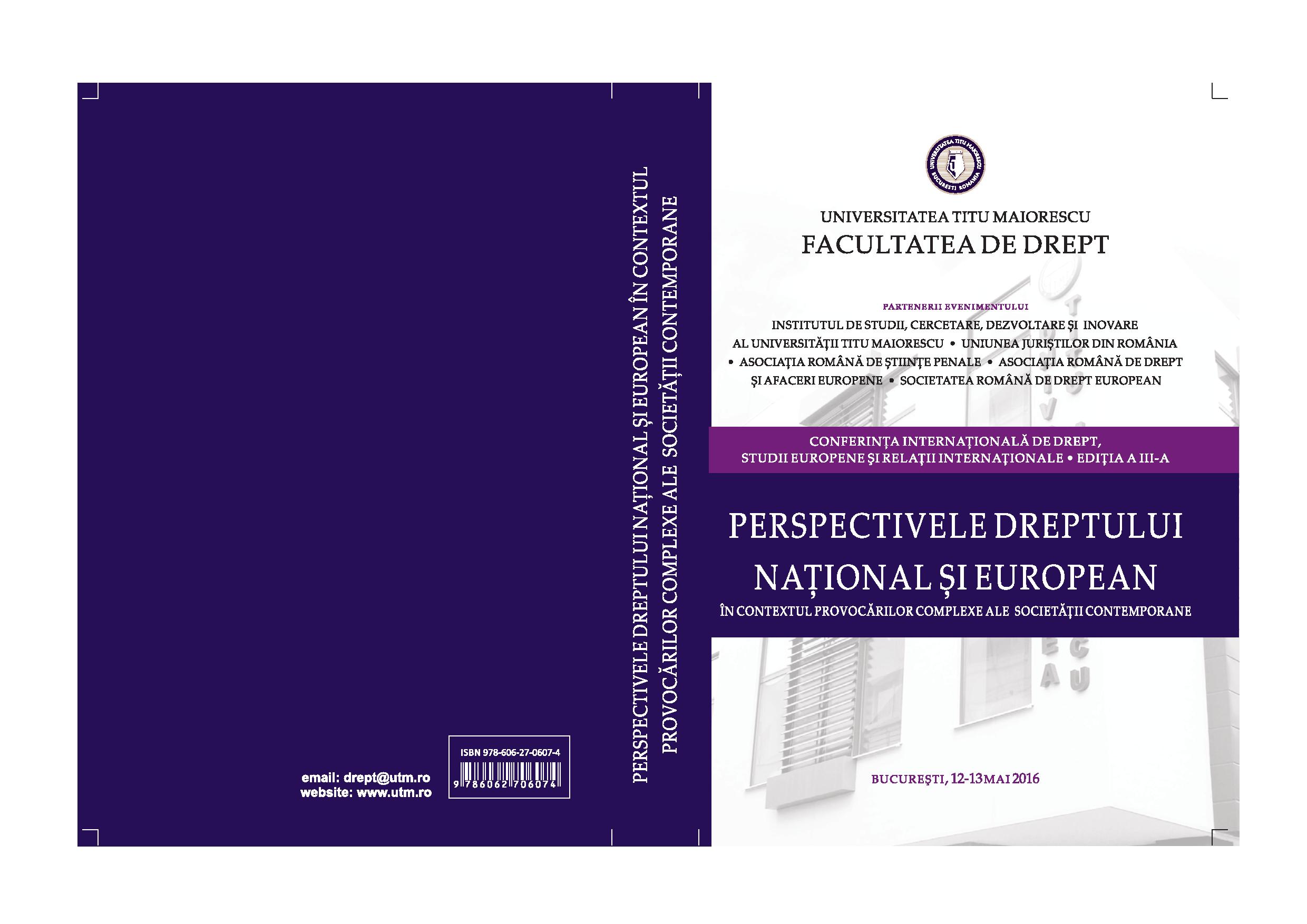
When dealing with institutional transparency, one should consider that Romanian society has been mostly oriented towards the opaqueness of institutions, a limitation of access to information regarding the activity of public institutions and the decision making process.Integration with Euro-Atlantic structures has resulted in the adoption of legislative acts guaranteeing the students' right to information and freedom of expression. Likewise, the concept of "transparency" has been explicitly established in the activity of public institutions.However, for reasons related to the proper operation of such institutions and social relations as a whole, both the right to information and freedom of expression can be subject to limitations, that should be proportional to the situation generating them, that should be non-discriminating and, especially, that should not affect the existence of the right or freedom itself.The evolution of fundamental human rights is closely related to the evolution of society as a whole, with a joint coverage of transformation phases.
More...